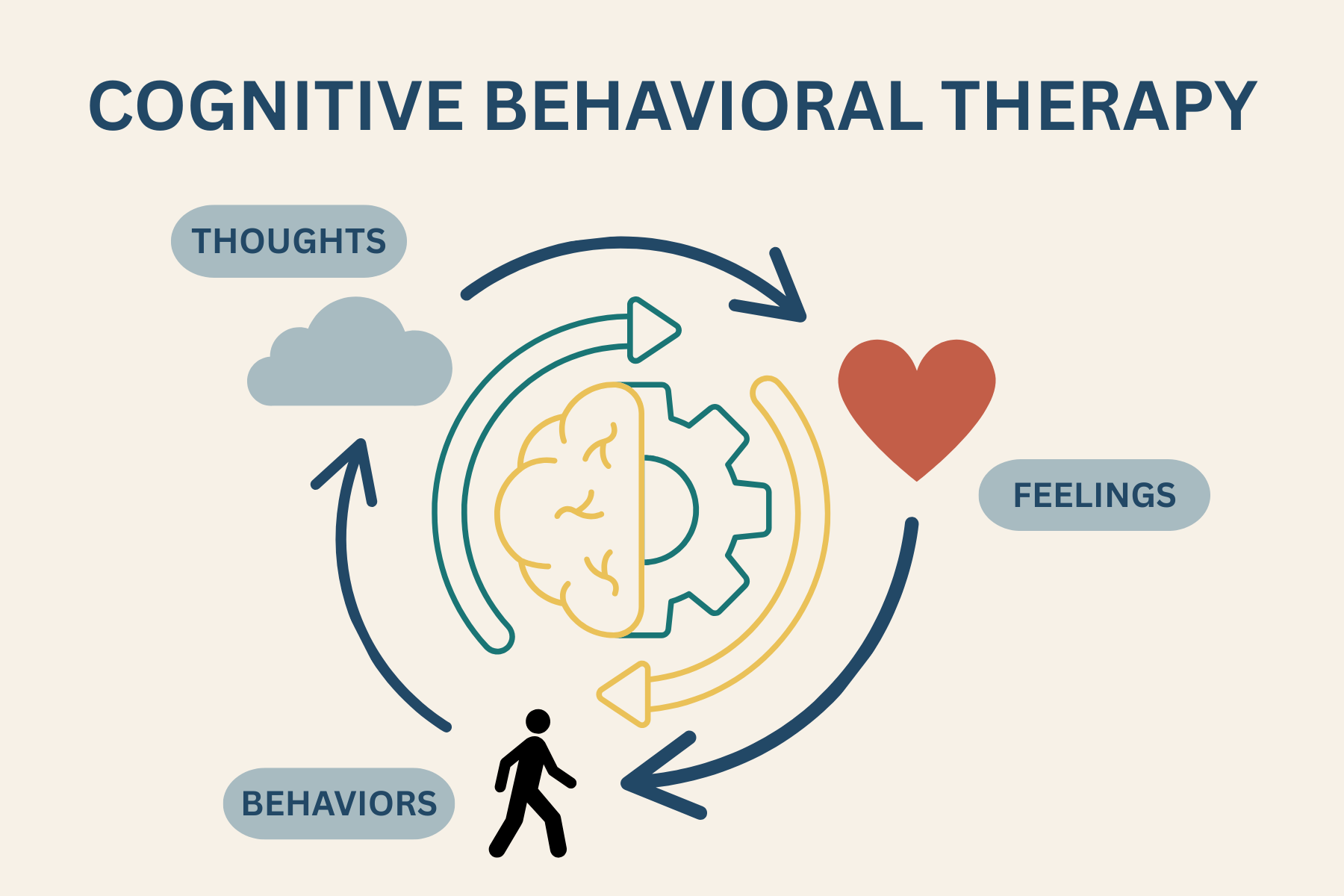What is Cognitive Behavioral Therapy
Written by Dana McPherson, LCSW
Are you looking for effective mental health treatment options for depression, anxiety, or panic attacks? Cognitive Behavioral Therapy (CBT) might be just what you need. This article will delve into the basics of CBT, its benefits, and how you can find the right therapist in Oregon or Washington. CBT is a widely researched and evidence-based intervention, shown to improve the symptoms of many mental health challenges. Because of this, CBT offers a clear path forward by helping you understand your thoughts and develop healthier behaviors. For many, CBT is a roadmap for creating meaningful change in their life.
“CBT can be really helpful in improving quality of life and can be as, if not more, effective than other therapies and even medication!”
Understanding Cognitive Behavioral Therapy
Cognitive Behavioral Therapy (CBT) is a present-focused form of psychotherapy that aims to change unhelpful thinking patterns—such as distortions, biases, or misinterpretations—in order to improve emotions and behaviors. Based on the idea that thoughts, feelings, and behaviors are interconnected, CBT helps individuals identify and challenge negative thoughts, leading to more balanced decision-making and healthier behavior patterns.
“It’s so empowering for patients to discover that they actually have the power to make meaningful changes in their own lives. CBT is really about the patient working with a therapist to access tools within themselves to improve their lives. I’ve had a patient tell me that she felt like she had unlocked a superpower within herself that she hadn’t known was there!”
Key Principles of CBT
Cognitive Restructuring: Helps individuals recognize distorted or unhelpful thoughts and replace them with more balanced and constructive alternatives.
Behavioral Activation: Encourages engagement in meaningful or enjoyable activities to counter patterns of avoidance and improve mood.
Problem-Solving: Builds practical skills for effectively managing challenging or stressful situations.
Exposure Therapy: Involves gradual, controlled exposure to feared situations or triggers to reduce anxiety and avoidance over time.
Benefits of CBT
CBT is widely recognized for its effectiveness in treating a range of mental health challenges. Here are some benefits:
Evidence-Based
CBT is supported by a significant amount of scientific research. Numerous studies have shown its effectiveness in treating anxiety disorders, depression, PTSD, and other mental health conditions.
Short-Term and Goal-Oriented
CBT is typically short-term. Sessions are structured and goal-oriented, making it a practical choice for many people looking for efficient results. It’s about giving you the tools you need to live an intentional and fulfilling life.
Skills Development
CBT equips individuals with practical skills that they can use long after therapy has ended. These skills help with managing stress, improving communication, and enhancing problem-solving skills.
Customizable
Therapists can tailor CBT to meet the specific needs of each individual. This allows each treatment plan to be as unique as the individual it was intended for.
“As I learn about patients and get a sense of the problems they're having, I’m able to clarify feelings and bring things to their attention that they may not have been able to see before.”
Conclusion
Cognitive Behavioral Therapy is a powerful tool for addressing mental health issues. It gives you the tools to confidently face challenges and improve your mental health. With its structured and evidence-based approach, CBT can help you transform negative thinking patterns and behaviors into positive ones.
Remember, seeking help is a sign of strength, and finding the right therapist can make all the difference in your journey to mental wellness. Whether you're struggling with anxiety, depression, or other challenges, CBT offers a path to healing and growth. Your mental health is worth investing in, and the right support is within reach.
Ready to take the next step toward feeling better? Schedule an appointment now with one of our compassionate, CBT trained therapists at Aspire Psychology. When you complete the initial inquiry form by clicking Make an Appointment or contact us if you have questions. You can choose the therapist that aligns most with your goals, or you can opt to have our Patient Care Coordinator help match you with someone with current openings.

